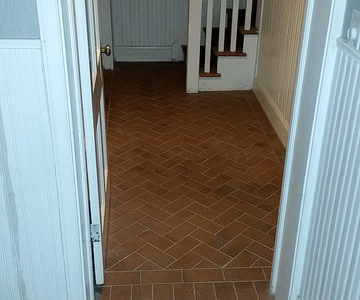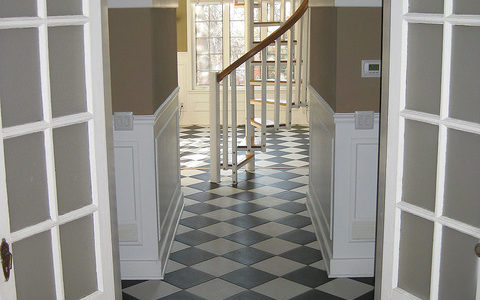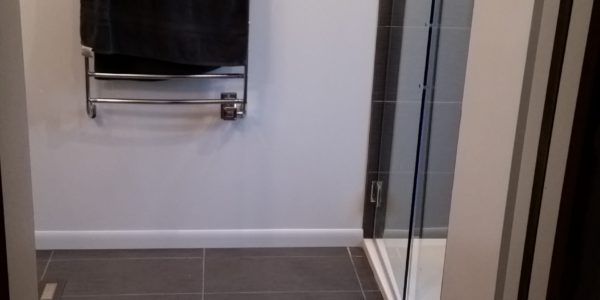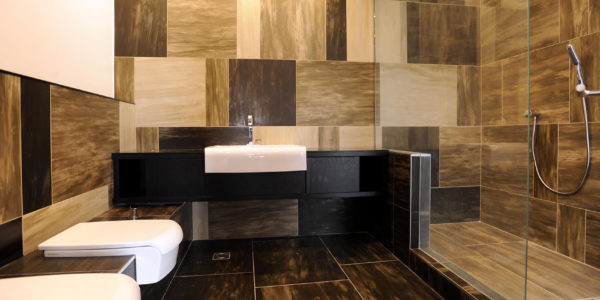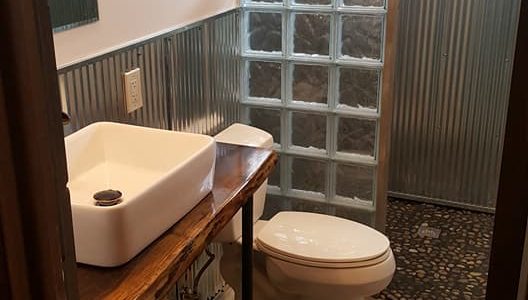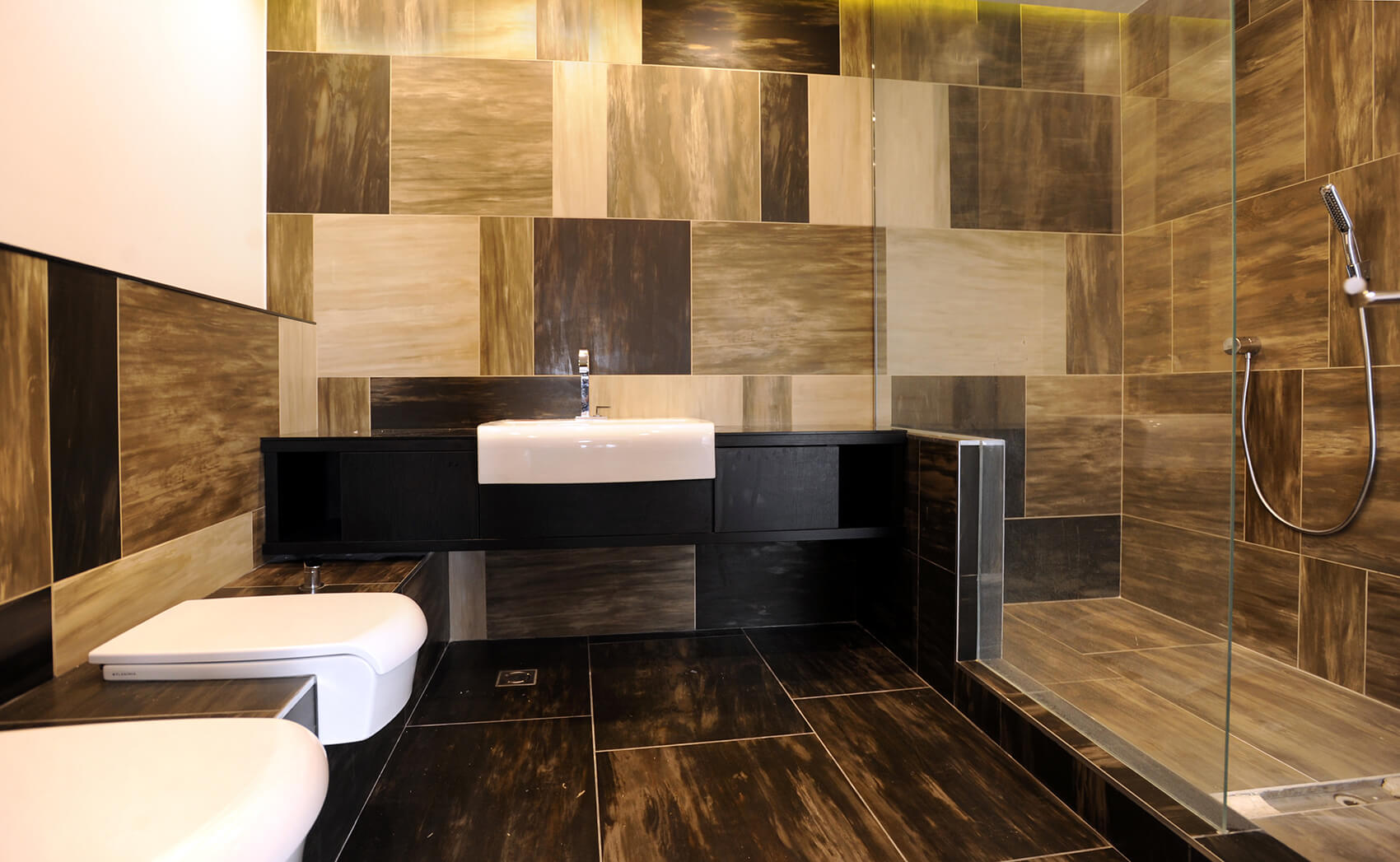
- Oakdale Bathroom Angle 1
- Man Cave Bathroom Angle 2
Prefinished Hardwoods
Prefinished, or factory-finished wood flooring, rising greatly in popularity, can come in strip, plank or parquet squares that are 5/16” to ¾” in thickness. As the name implies, the finish is applied at the factory, which translates into no sanding dust, no fumes from the finish, and immediate use. With these benefits, it’s no wonder that prefinished flooring has become increasingly popular.
The aluminum oxide coating applied at the factory is more durable than polyurethane applied on site. The factory allows a precise control of the environment that not only insures consistency, but also controls the potential health hazards associated with the application of a metal oxide finish.
The result is a floor with a finish coat likely to last up to two times longer than a floor finished on site.
Tile
Ceramic and porcelain tile are some of the longest lasting flooring products on the market today. Unlike carpet, vinyl, or laminate flooring which have to be replaced periodically, properly installed tile will last a lifetime.
Indoor air quality is a hot topic and for good reason. Volatile organic compounds (VOCs) contribute to a wide variety of health problems and are a significant cause of “sick building syndrome.” Since tile is fired in kilns to extremely high temperatures, there are no volatile organics in the finished product that can be released into the air we breathe; literally “zero.” In addition, there are adhesives and grouts available that contain zero, or very low VOCs. Some carpet, vinyl, and wood flooring contain low VOCs, but none can compare to zero.
Laminates
If you’re dreaming of hardwood floors in the bathroom but having nightmares about the cost, take heart. You can get the look of wood with laminate, which closely mimics the texture, color and graining of real woods. Laminate can withstand drippy towels and stand up to heavy traffic and dropped curling irons. It also resists even the toughest stains, from makeup to nail polish.
Epoxy
Garage floors deal with a ton of abuse, from hot tires and dripping oil to sawdust and dirt. It’s no surprise that after a couple years, a pristine concrete garage floor can look wrecked. A worthwhile home upgrade is painting your garage floors, which will protect them from all manner of gunk and make cleanup much easier.
Oil stains are the worst as they work their way into porous concrete and leave a slick residue that picks up dirt and is easy to track into the house. If you’re fortunate to have a vehicle that doesn’t have an oil leak, your garage floors are still subject to other fluids that are commonly stored in a garage including gasoline and antifreeze which can leak or spill and damage your floors.

